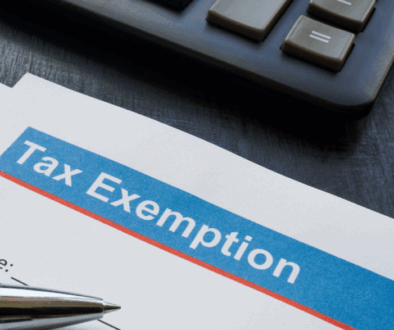Maximizing Tax Deductions for Summer Travel Expenses
Maximizing Tax Deductions for Summer Travel Expenses
As the summer season kicks into high gear, many of us are eagerly planning our much-awaited vacations. Whether it’s a road trip to the beach or a flight to a tropical paradise, summer travel can be a great way to unwind and recharge. But did you know that you might be able to claim tax deductions for some of your travel expenses? That’s right – by keeping track of certain expenses and following a few simple guidelines, you can potentially save some money come tax season.
Tax Deductions for Summer Travel Expenses
When it comes to tax deductions, summer travel can be a goldmine for those who know what to look for. In general, the IRS allows for deductions on travel expenses that are both “ordinary and necessary” for your business or job. If your summer travel fits into this category, you may be able to claim a portion of your expenses as tax deductions.
But what exactly counts as “ordinary and necessary” travel expenses? According to the IRS, these expenses can include transportation costs, lodging, meals, and even tips. However, it’s important to note that not all travel expenses are deductible. For example, expenses that are considered lavish or extravagant, such as first-class flights or luxury hotel rooms, are not eligible for deduction.
Keeping Track of Travel Expenses
In order to claim tax deductions for your summer travel expenses, you’ll need to keep careful track of all your expenses. This means saving receipts, tracking mileage, and documenting all your expenses in a detailed record. Without this documentation, it will be difficult to prove your expenses to the IRS in the event of an audit.
Luckily, there are a variety of tools and services available to help you keep track of your travel expenses. For example, there are many apps that allow you to easily track your mileage, scan receipts, and even categorize expenses by type. Additionally, many credit cards offer travel rewards that can help you save money on your summer travel expenses while also providing built-in tracking and documentation tools.
Deductible Expenses for Business Travel
If you’re traveling for business purposes, there are a variety of expenses that may be deductible. For example, transportation costs such as airfare, rental cars, and taxis may be deductible if they are necessary for your business travel. Additionally, lodging expenses such as hotel rooms may be deductible if they are necessary for your business travel.
When it comes to meals, the rules for deductibility can be a bit more complex. In general, meals that are necessary for your business travel may be deductible up to 50% of the cost. However, there are certain rules and limitations that apply to this deduction, so it’s important to consult with a tax professional or review the IRS guidelines carefully.
Deductible Expenses for Personal Travel
If you’re traveling for personal reasons, there may still be some travel expenses that are eligible for deduction. For example, if you’re traveling to a destination that is also a business location, you may be able to deduct certain expenses related to your business activities. Additionally, if you’re traveling to a medical conference or seeking medical treatment, you may be able to deduct certain medical expenses.
However, it’s important to note that personal travel expenses are generally not deductible unless they are directly related to a business purpose. For example, if you’re traveling to a conference for work and decide to extend your trip for a few extra days to sightsee, you may be able to deduct the expenses related to the conference portion of your trip, but not the expenses related to your sightseeing.
Maximizing Deductions for Combined Business and Personal Travel
If you’re combining business and personal travel, there may still be opportunities to maximize your tax deductions. For example, if you’re traveling to a destination for both business and personal reasons, you may be able to deduct a portion of your expenses based on the percentage of time you spent on business activities. Additionally, if you’re traveling with family or friends, you may be able to deduct certain expenses related to their travel if they are also involved in your business activities.
However, it’s important to be careful when combining business and personal travel, as the rules and limitations for deductions can be complex. It’s a good idea to consult with a tax professional or carefully review the IRS guidelines to ensure that you’re maximizing your deductions without running afoul of any rules or regulations.
Common Mistakes to Avoid When Deducting Travel Expenses
When it comes to deducting your summer travel expenses, there are a few common mistakes that can get you into trouble with the IRS. One of the biggest mistakes is failing to keep accurate records of your expenses. Without detailed documentation, it will be difficult to prove your expenses if you’re audited.
Another common mistake is deducting expenses that are not actually eligible for deduction. For example, deducting the cost of a family vacation as a business expense is not allowed, even if you conducted some business activities during the trip. It’s important to carefully review the IRS guidelines and consult with a tax professional if you’re unsure about whether a particular expense is eligible for deduction.
Travel Expenses for Self-Employed Individuals
If you’re self-employed, you may be eligible for some additional deductions related to your summer travel expenses. For example, if you’re traveling for business purposes, you may be able to deduct the entire cost of your trip, including transportation, lodging, and meals. Additionally, if you’re traveling to a conference or other business event, you may be able to deduct the cost of your registration fees, as well as any other expenses related to attending the event.
However, as with any tax deduction, it’s important to keep careful records and follow all the rules and guidelines set forth by the IRS. Additionally, it’s a good idea to consult with a tax professional to ensure that you’re taking advantage of all the deductions available to you as a self-employed individual.
Other Tax Considerations for Summer Travel
In addition to deductions for travel expenses, there may be other tax considerations to keep in mind when planning your summer travel. For example, if you’re traveling internationally, you may need to be aware of any tax treaties or agreements between the United States and the country you’re visiting. Additionally, if you’re planning to do any work or conduct any business activities while you’re abroad, there may be additional tax implications to consider.
It’s always a good idea to consult with a tax professional before embarking on any international travel to ensure that you’re aware of all the tax implications and requirements. Additionally, it’s important to keep all documentation related to your travel expenses, including passports, visas, and other travel documents.
Conclusion
Summer travel can be a great way to unwind and recharge, but it can also provide opportunities for tax savings if you know what to look for. By keeping careful records and following the guidelines set forth by the IRS, you can potentially claim tax deductions for a variety of travel expenses. Whether you’re traveling for business or personal reasons, it’s important to consult with a tax professional and carefully review the IRS guidelines to ensure that you’re maximizing your deductions without running afoul of any rules or regulations. So go ahead and plan that summer vacation – just don’t forget to keep track of your expenses along the way!




